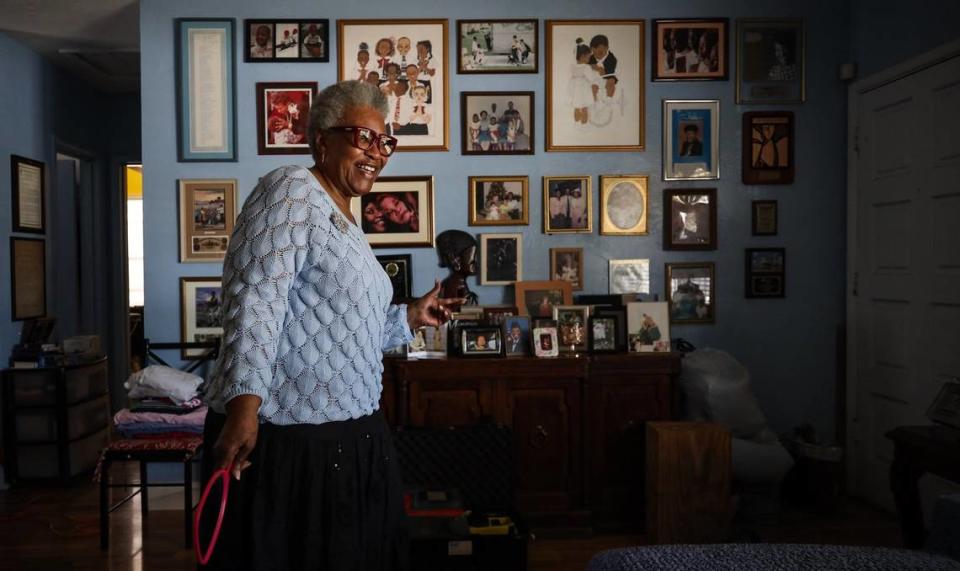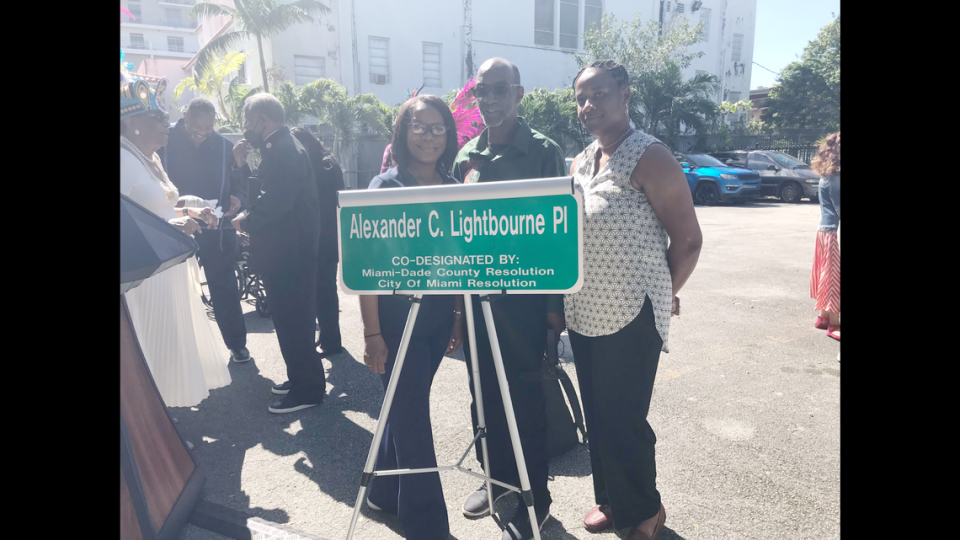Black history is U.S. history, and it’s ours to share. Here are some in Miami who lead the effort | Opinion
Whose history is it? Ours to discover, learn and share. Black history is American history 24/7, twelve months every year. No legislation or mandate can take away or interpret for us our background and experiences of joy and hurt, failures and accomplishments.
In 1977, after completing graduate studies in curriculum and instruction, library science, public administration and training in archives administration, I created The Black Archives, History & Research Foundation of South Florida Inc. This educational institute, a community archive, promotes scholarship and historical research to help save Miami-Dade County’s Black community.
Collecting, processing and making available photographs and non-current materials such as school and church programs, obituaries and non-current individual and family papers was not enough. Saving the community’s historic sites was also necessary.
After studying historic preservation, I earned a doctorate degree in public history and conducted the historical research that saved from destruction the Lyric Theater, Chapman House, Dorsey House, Greater Bethel AME Church, Mt. Zion Baptist Church, Cola Nip (J&S) Bottling Company, Dr. S. H. Johnson’s X-Ray Clinic and St. John Missionary Baptist Church.
Then-Miami Dade County Commissioner Barbara Carey-Shuler appointed me to the Metro-Dade Historic Preservation Board, where I served 19 years, five of those years as chair.
Along the way, I was inspired by pioneer educators Dorothy McKellar, Marian Shannon, Eunice Liberty, John McKinney, Charles L. Williams, Ida Ratcliff, Robbie George, Kate Stirrup Dean, Georgiana Bethel, Nelson Adams, Sr., David Dobbs, Sr., and many others.
That was in the 20th century, when Black history was not included in the local or state school curriculum. Instead, Black-owned publications including newspapers Miami Times, Tropical Dispatch, Pittsburgh Courier, and magazines Ebony and Jet, were our textbooks.
Now in the 21st century — in my conversations with retired educators Lois Oliver, Dr. Gloria McPhee, Beverly Nixon, Agenoria Paschal Powell, Dr. George Koonce, and Dr. Clarence Jones, and others — I am reminded that in the past, oratorical and essay contests in churches, civic and social organizations were used to teach Black history in communities throughout the United States. In recent times, interesting initiatives that connect Miami’s Black history have been presented. Among those who have undertaken meaningful community initiatives:

Bea Hines, The Miami Herald’s longest-serving reporter and columnist. She began writing the community’s story in 1970. Promoted from Herald library file clerk to reporter, her current column — which appears in the Neighbors edition of the Miami Herald — often touches on current events, matters of faith, and descriptions of her life growing up Black in Miami in the 1950s. Her latest adventure: a “Teach the Truth” bus tour with Dr. Marvin Dunn to Tallahassee while the Legislature was in session.
SEE: ‘SHE PAVED THE WAY.’ HOW A WOMAN WITH BIG DREAMS BROKE BARRIERS TO TELL MIAMI’S STORY
Dr. Marvin Dunn, professor emeritus, Department of Psychology at Florida International University. He has been guiding students, their parents and teachers to the sites of some of the worst racial violence in Florida history. Dr. Dunn is quoted as saying, “This Black man is not going to stand for Black History being white-washed.” In a bold move, Dunn has opposed Gov. Ron DeSantis’ law prohibiting lessons on race and push to ban African American studies in Florida’s public schools. Dr. Dunn is one of eight plaintiffs in the case against DeSantis’ Stop Wrongs to Our Kids and Employees Act (WOKE).
Nadege Green, founder and lead researcher of Black Miami Dade, an emerging online platform. The free education curriculum resists the erasure of Black Miami Dade’s past.
Marvin Ellis, longtime dedicated community genealogist. He organizes annual genealogy programs at The Church of the Incarnation, 1835 NW 54th St. in Miami.
Wallis Hamm Tinnie, president, The Florida Black Historical Research Project, Inc. She provides the public with previously hidden or forgotten facts about Florida’s Black History, including early African arrivals, Black pirates, the mound builders, Southern Underground Railroad routes, Seminole Maroons and the Seminole Wars, particularly the 1838 Loxahatchee Battlefield in northern Palm Beach County. Under her leadership, the 185 year Seminole Maroon Family Reunion was held in Jupiter on Jan. 11-15 this year.
C. Isaiah Smalls II, Miami Herald reporter who covers race and culture. He also authors a weekly newsletter in the eHerald to promote its coverage of Black and brown communities. Titled “The 44 Percent,” the newsletter draws its name from the percentage of Black males who voted to incorporate the City of Miami in 1896.

AnnMarie Henry, Christine Malcolm and Keith Moore, independent self-taught historical researchers. They began by searching in Overtown at The Black Archives for information about three pioneers in West Coconut Grove: E.W.F. Stirrup, Maria Brown and Dan Anderson. Dr. Dunn’s book “Black Miami in the Twentieth Century” was high on the list as it is the go-to book for consolidated information about the Black history in South Florida. As a result of one project, a street was designated honoring A.C. Lightbourne, one of the City of Miami’s 1896 incorporators. Another project is a video of a pioneer community, Brownsville, led by Dr. Enid Pinkney with assistance from Dade Heritage Trust. More to come!
Kunya Rowley, founder and artistic director of Hued Songs. The organization strives to be a conduit for accessible arts and community building through a multicultural and equity-focused lens. Hued Songs produces performances across South Florida that amplify Black joy and Black culture. Through song, spoken word, dance and heart, our work seeks to be a platform where BIPOC artists are seen, heard, and paid and build belonging, empathy and community for all. Catch Hued Songs on May 20 in an online community activation, “When Black Freedom Came to Florida.” Details are online at huedsongs.org. Also: the annual celebration of our Juneteenth — The Juneteenth Experience — is at the Miami Beach Bandshell, 7275 Collins Ave., on June 19th at 6 p.m.
These initiatives help define Black Miami-Dade for current and future generations. Follow them on social media, and support their efforts.
This is the first in a quarterly series highlighting meaningful community initiatives. If you wish to nominate an individual, group or organization for this series, email information to the address below.
Keep it going!
Dorothy Jenkins Fields, Ph.D., is a public historian and founder of the Black Archives, History & Research Foundation of South Florida Inc. Send feedback to djf@bellsouth.net

